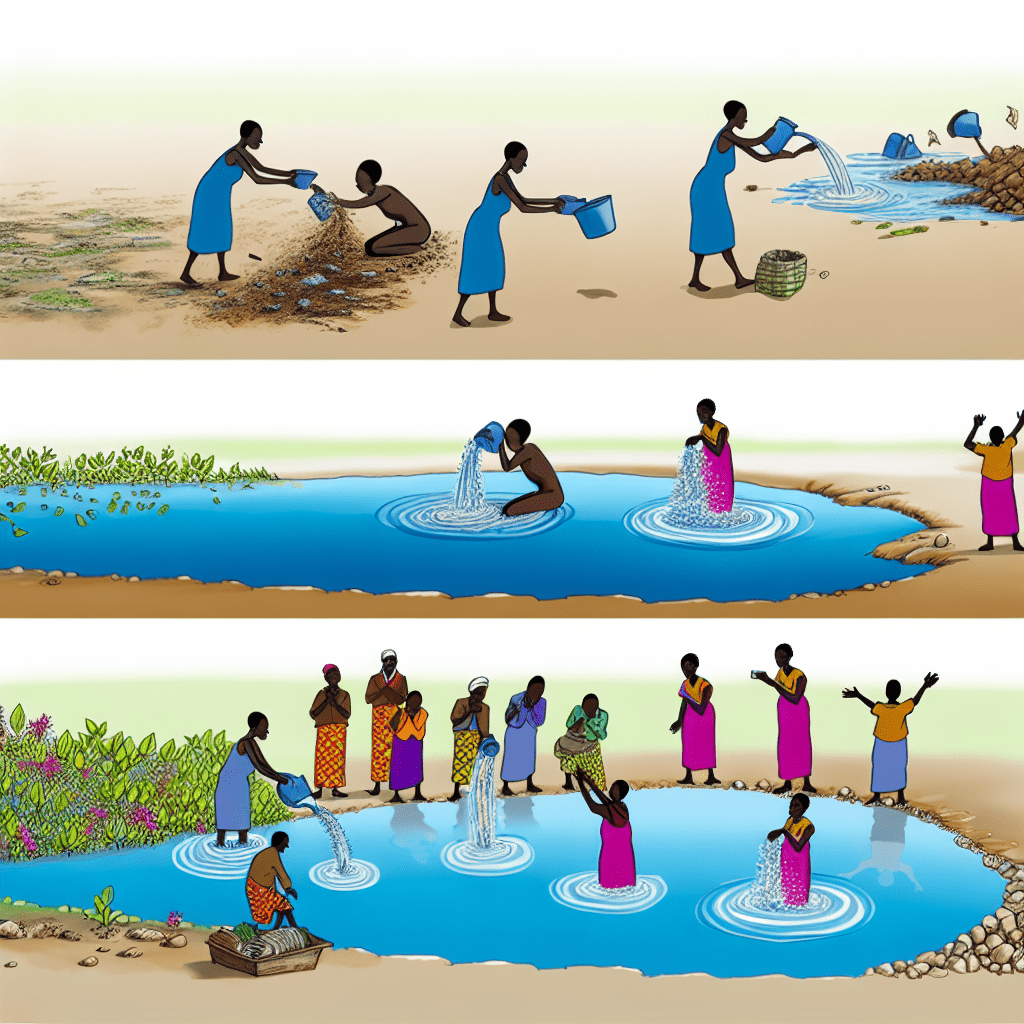”
Despite being endowed with numerous freshwater bodies, Kenya is wrestling with severe water quality issues. This article seeks to unravel these problems, their root causes, and suggests potential solutions to ensure cleaner, safer water for its inhabitants.
Kenya’s water quality challenges primarily stem from industrial pollutants, agricultural runoff, inadequate wastewater treatment, and ever-increasing impacts of climate change.
Key pollutants in Kenya’s waters include dangerous heavy metals, toxic industrial effluents, untreated sewage, and excess nutrients that foster harmful algal blooms. These pollutants pose considerable health risks, disrupt intricate aquatic ecosystems and overburden existing water treatment facilities.
While the Water Act provides a regulatory framework, persistent water quality issues underscore the urgent need for more robust, sustainable strategies.
Improvement of Kenya’s water quality necessitates tougher regulations on polluters, significant investment in advanced wastewater treatment infrastructure, widespread embrace of sustainable farming practices, and resilient water management strategies in line with climate change impacts.
Further critical to this journey is the role of public awareness and education. Nationwide campaigns on water conservation, pollution control, and accentuating the importance of clean water can precipitate significant societal shifts.
In conclusion, while the path towards superior water quality in Kenya may seem uphill, it is far from impossible. Through steadfast policy enforcement, technological innovation, and heightened public participation, Kenya can transition from murky waters to crystal streams.
By FountainGO!

